Library game design workshops benefit everyone
A follow-up on a recent “How to run a tabletop game design workshop at your library” webinar explaining why game design workshops benefit the individual, the library, and the community.
I had the opportunity last week to give a webinar talk on “How to run a tabletop game design workshop at your library” hosted by the Indiana State Library. It’s a topic I’ve covered before and one I’m quite passionate about.
With a little less than an hour to speak, I wanted to give attendees some specific, actionable things they could do to make their workshops successful. By the end, they should be able to:
Define the scope of their workshop.
Choose topics.
Pick a workshop format.
Have some ideas for hands-on activities.
Know how and when to promote the class.
I covered how to choose between board games and TTRPG (or both), as well as deciding on a single session class or a multi-session workshop. The five different, specific hands-on activities I presented seemed to be well received too.
But before all that, I felt it was important to explain why games belong in libraries in the first place.
So I started the talk with the following thesis: Game design workshops benefit the individual, the library, and the community.
My goal was to both help designers explain to libraries why a class would work, but also for libraries to have some ways to convince designers to give it a try!
The individual
Looking at the most granular level first, the individuals who attend the game design workshops or classes are directly benefited. Certainly the top impacts are improved critical thinking, math, and logic — fundamental to any game design work. Beyond that, tabletop games and classes focused on them can also help to improve communication skills and social-emotional learning (SEL).
But to me, one of the most important benefits is a shift in confidence and self-image. I make a pointed effort to refer to people in the class as game designers. Even if they’ve never published a game, the very act of working on a game design makes them (to me) a game designer. This can shift their thinking from a passive “I play games” to an active “I make games.”1
The library
I’m not a librarian and I don’t work in a library, but even my tiny understanding of libraries make me appreciate how complex and daunting of a job it can be. So if there’s a way indie designers can help public libraries then I’m all in.
Offering to run a free game design class has some important benefits to the library. It can scale and adapt to any size or resources — limited only by chairs and room size. The classes are a way to have measurable engagement with metrics like attendance. And they can bring in new patrons who may have otherwise not stopped by the library that day.
Importantly, workshops expand the public’s view of what a library is and can be. It changes it from a place to consume media (e.g. books) and turns it into a place to create (e.g. games and art). This can help to center the library in the community as an important place for both learning and doing.
The community
Lastly, running game design programs can benefit the community surrounding the library. When people get together to meet, get to know each other, and share ideas, actual connections begin to form. Those connections can also be expanded by potentially involving local game stores and schools when publicizing the events. With enough effort, the workshops might even create a broader gaming community in the area.
The best part is that the workshops can be a low-barrier, low-cost, and inclusive activity for all. The classes I run are free in part because I keep my costs low, using scraps of paper, some markers, and other simple supplies.2
But you don’t have to take my word for it…
The American Library Association (ALA) Games & Gaming Round Table has a ton of information on their website about how and why to get games into libraries. Their Why have games in libraries? page is the best resource, dealing with specific obstacles and challenges you might encounter.
Is there a recording of the webinar? Yes!
Missed the webinar last week? No problem. The webinar was recorded and will be posted on the Indiana State Library YouTube channel. Specifically, it will be in the What’s Up Wednesday playlist when posted.
I’ll post a link via this newsletter when the video is up and available.
- E.P. 💀
P.S. I’ll be at PAX Unplugged later this week! No booth, but I’ll try to attend the Self Pub Meetup hosted by TTRPGkids. If you make and publish your own games, stop by!
Thanks for subscribing to Exeunt Omnes! Play some weird and wonderful games available at shop.exeunt.press.
Written, augmented, purged, and published by Exeunt Press. No part of this publication may be reproduced in any form without permission. Exeunt Omnes is Copyright 2025 Exeunt Press.
For comments or questions: games@exeunt.press
I appreciate this Kurt Vonnegut quote from A Man Without a Country: “Practicing an art, no matter how well or badly, is a way to make your soul grow, for heaven’s sake. Sing in the shower. Dance to the radio. Tell stories. Write a poem to a friend, even a lousy poem. Do it as well as you possibly can. You will get an enormous reward. You will have created something.”
Note that running classes, while cost-conscious, are not free. Even buying Sharpie markers, dice, and notecards for classes of 25+ people can be a real cost. I’m happy to have part of the revenue from Exeunt Press go back to support programs like this, and I couldn’t do that without your support. If you’ve ever made a purchase at the EP Shop, I really appreciate it.

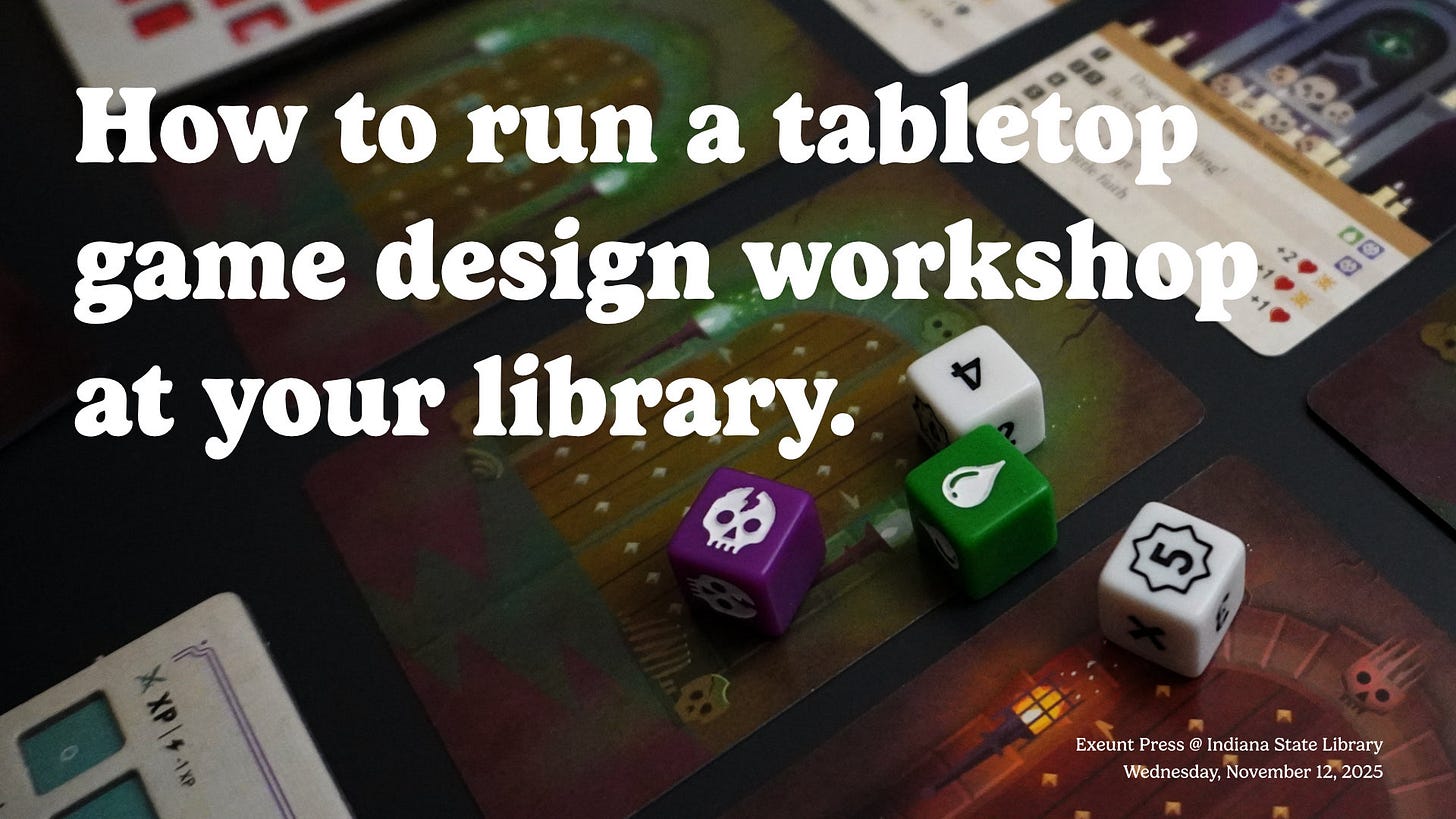
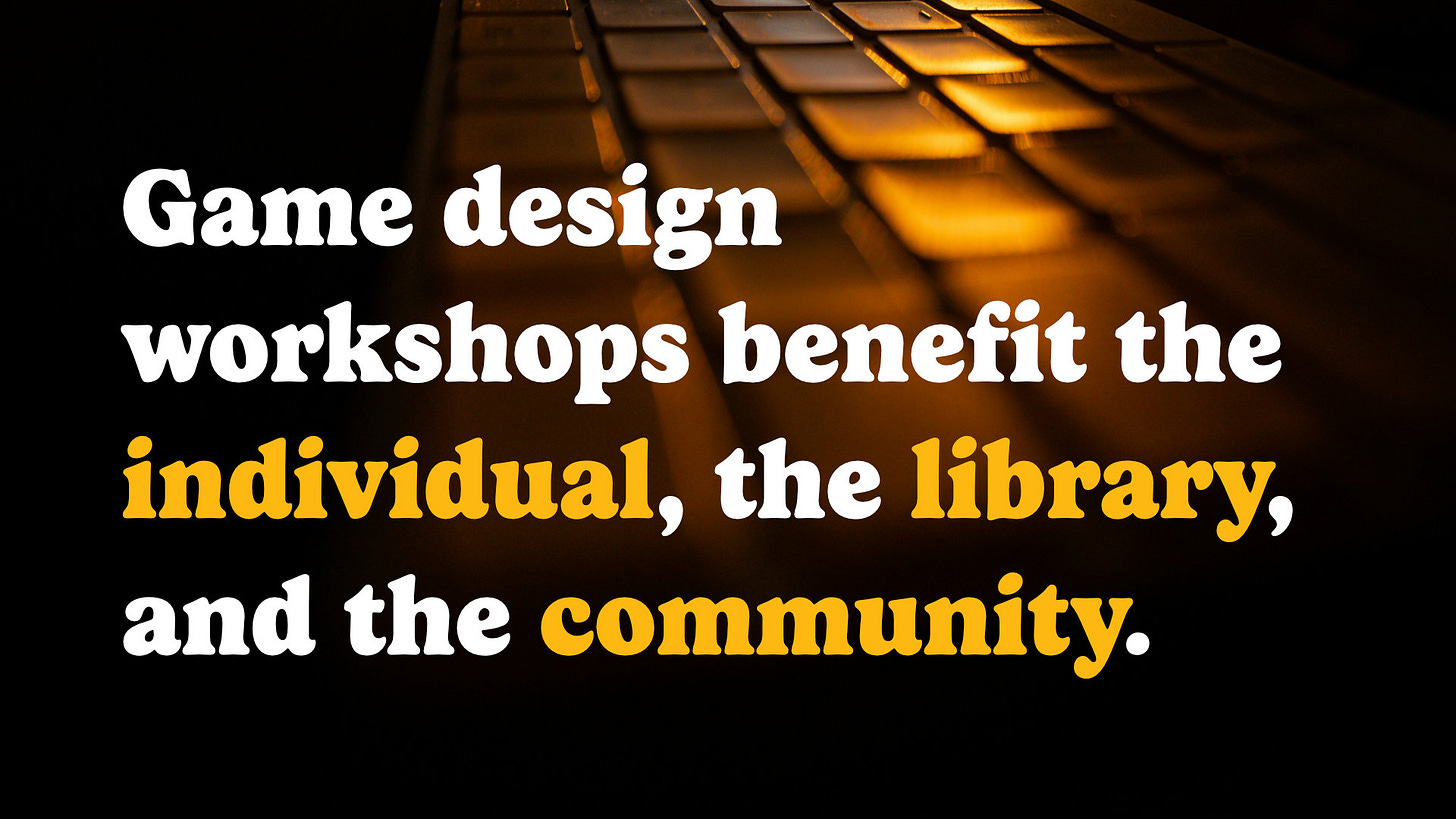
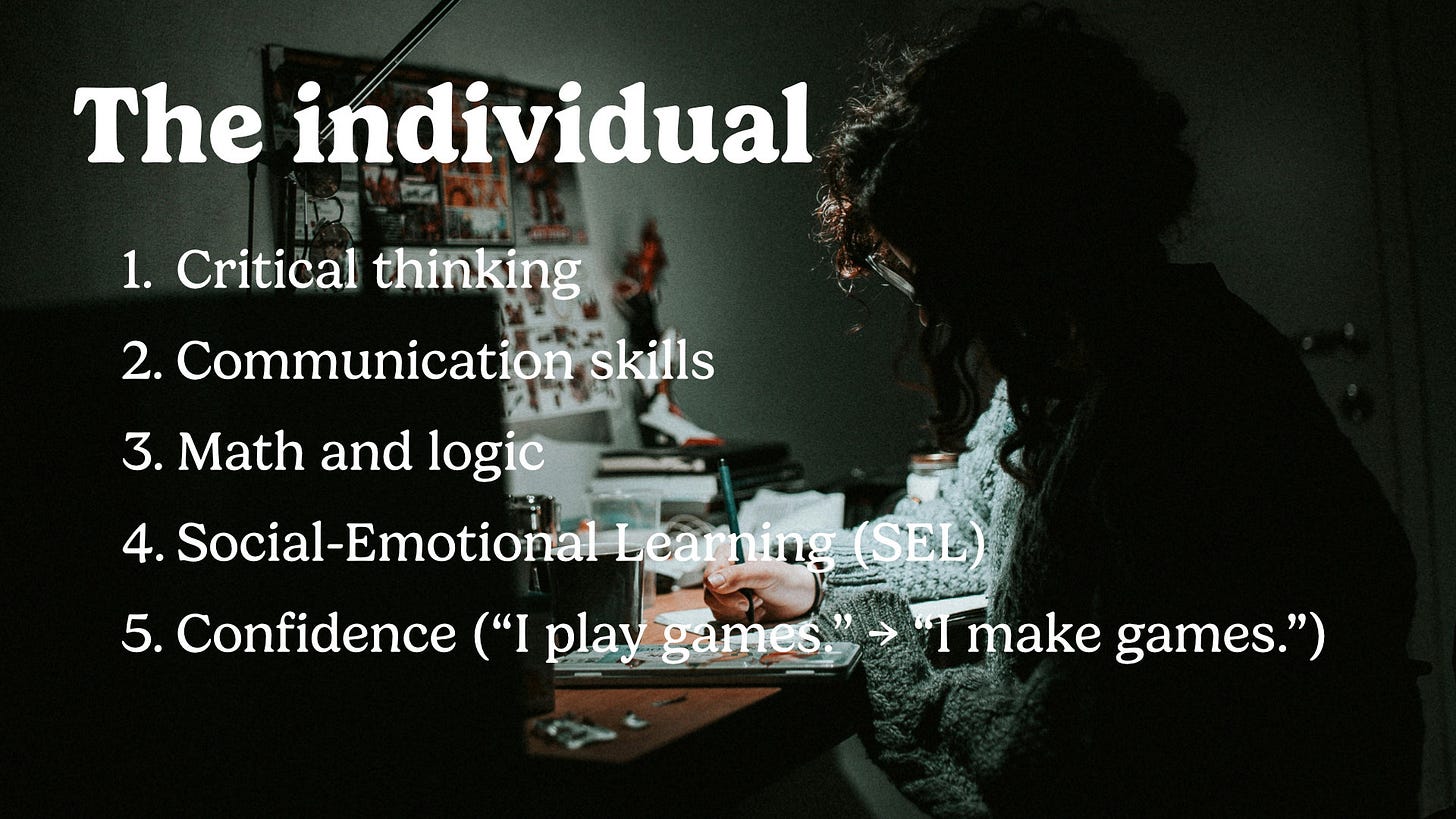
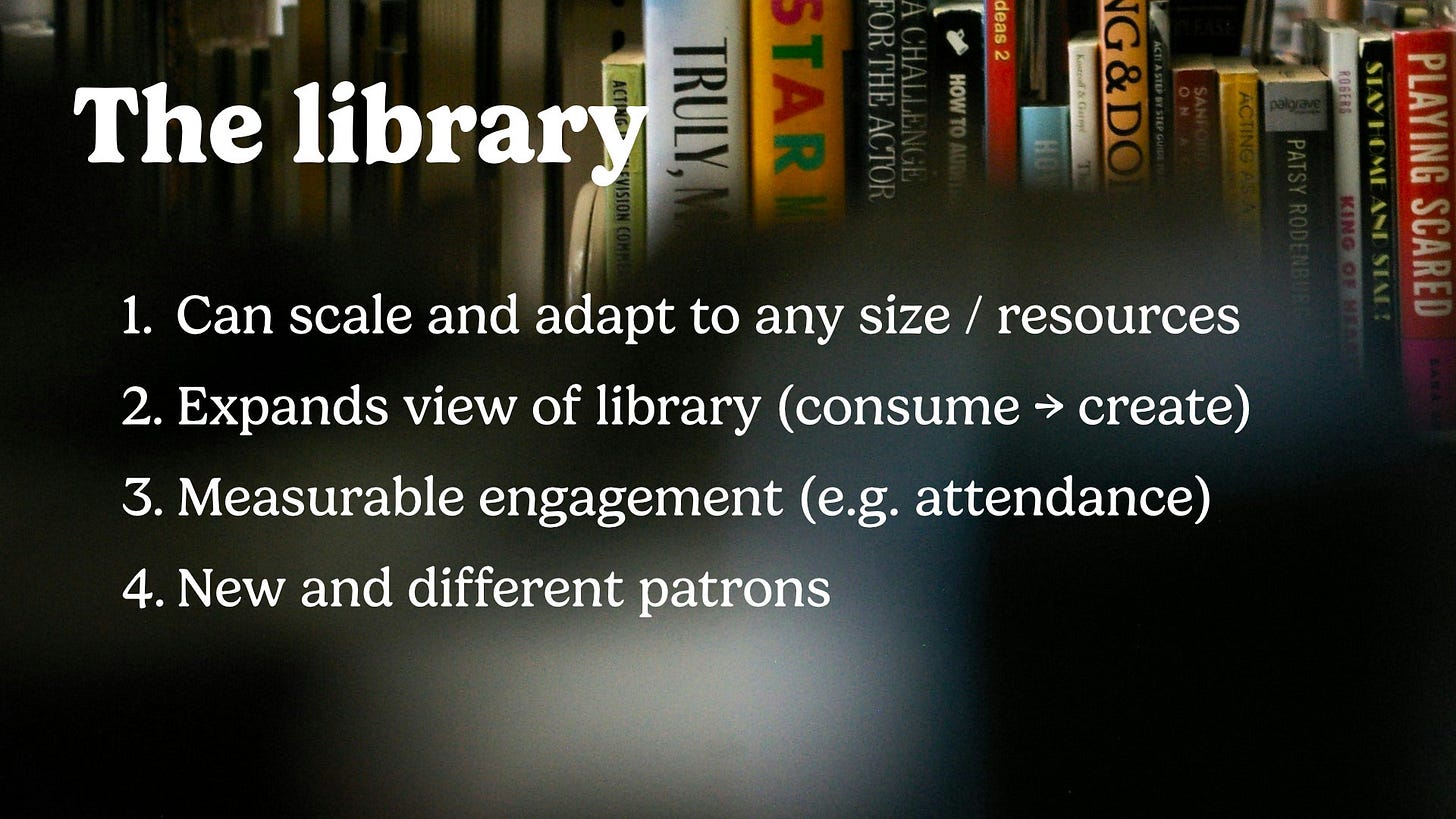
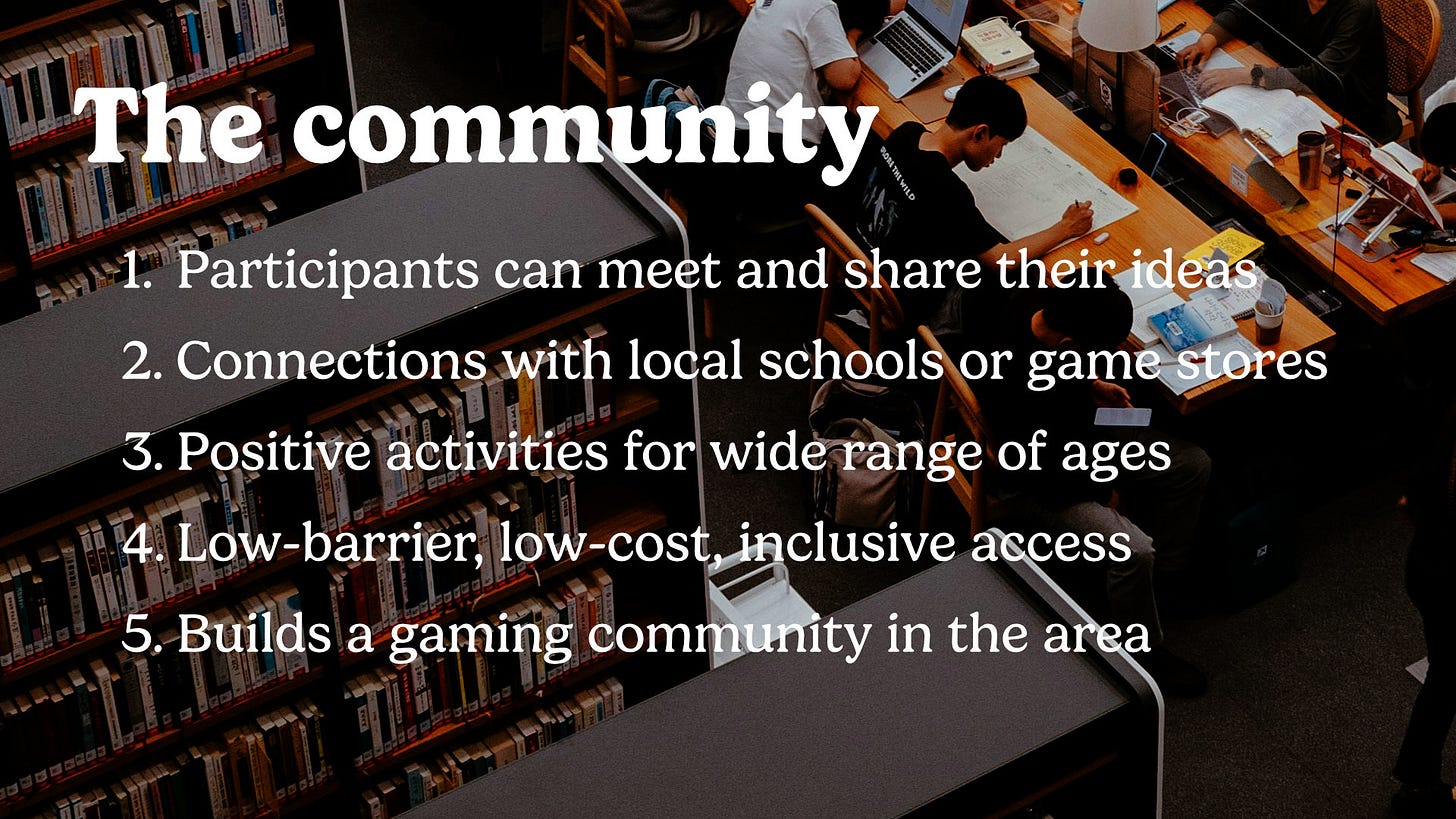
Recording on YouTube: https://youtu.be/Pg-kmNb0b5o?si=ku4jwmC6dot2a962
It was a great presentation! Thanks again for all you do to support libraries!